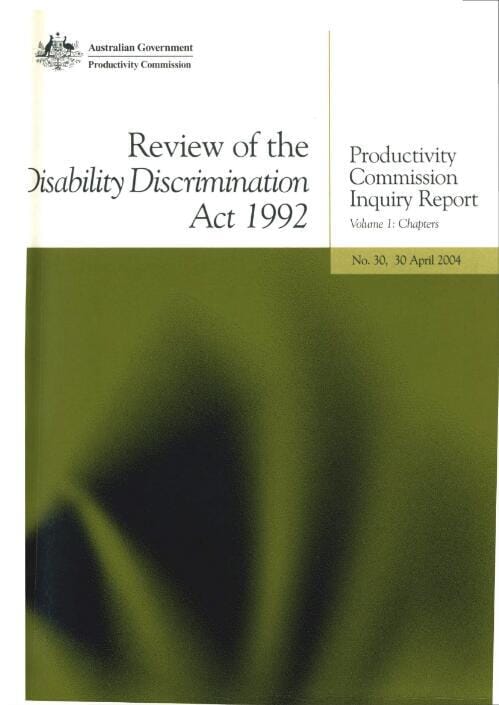
Image courtesy Productivity Commission
Government under fire for ‘saccharine’ review of Discrimination Act
Australia’s Albanese government has launched a sweeping review of the Disability Discrimination Act 1992, pledging to modernise a law untouched for more than 15 years—but critics say the reforms are overdue, vague, and dangerously soft.
The Human Rights Commission has hailed what it calls an essential review of current discrimination laws, stating current interpretations make cases “harder to prove” and emphasising the proposal to institute a “positive duty” to prevent discrimination before it occurs. But skeptics wonder: is the government really delivering change, or just optics?
Controversial flashpoints mainly surround issues that won’t be revisited, including long‑standing exemptions such as migration laws allowing exclusion of visa seekers with disability. Removal of such carve‑outs is supported by advocates who argue Australia is lagging behind international standards.
With consultation closing in late October, however, the chance of any widening of terms of reference is negligible, while actual reform timelines remain frustratingly opaque.
Critics also warn the review may clash with recent “positive duty” delays in workplace anti‑discrimination law, such as halted reforms on gender harassment in Queensland.
This has raised alarm amongst advocates who portray this review as little more than window-dressing, doubting the political will exists to enforce robust change.
Sources within the government dispute this, insisting that it is the advocates who are out of step with community values.
________________________________
[continued from newsletter]
What’s really at stake
The Attorney‑General’s Department has opened public consultation with an Issues Paper outlining potential areas for reform. These include redefining what constitutes “direct” and “indirect” discrimination, clarifying the duty to make reasonable adjustments, and strengthening enforceability of the Disability Standards through stronger penalties and powers for the AHRC.
The Paper also invites scrutiny over scope and consistency, such as how “unjustifiable hardship” is defined when refusing reasonable adjustments, or whether exemption certificates for duty‑holders will weaken protections instead of strengthening them.
The debate is heating up. Advocates warn that until the law binds actors to clear, enforceable standards, the country will remain in a veneer of progress without substance. Equally, however, the government points out that they do not have to stand for election in three years.
There are also other issues that need to be tackled.
The Royal Commission’s final report, released in September 2023, made a total of 222 recommendations. Government has only committed to implementing a small proportion of these. This leaves huge swathes of urgent reform still unaddressed, including involuntary sterilisation, restrictive practices in care settings, and segregation in education and housing.
Key flashpoints to watch:
Will migration carve‑outs for those with disability be scrapped?
Will the concept of positive duty become enforceable law?
Will disability standards be tied to building codes and penalties?
